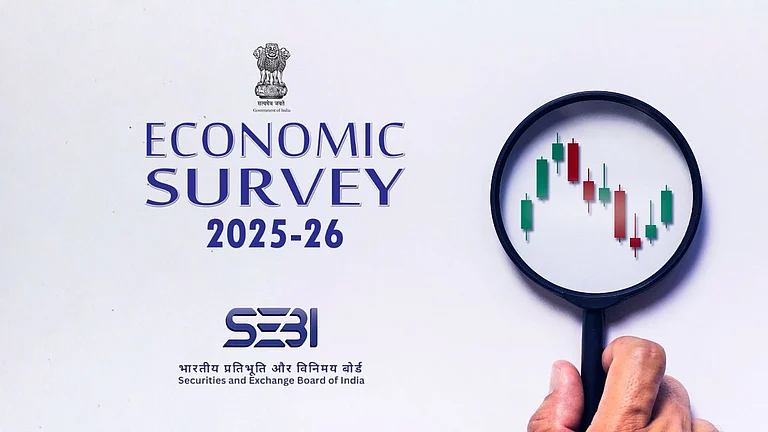Amid a boom in share sales, India's Chief Economic Advisor V Anantha Nageswaran on Monday rued that the initial public offerings are becoming exit vehicles for early investors in an enterprise, and remarked that this is undermining the spirit of public markets.
Speaking at an event organised by CII here, Nageswaran added that the country's capital markets should evolve "not just in scale, but in purpose" as well.
The CEA also urged to guard against "celebrating wrong milestones" such as market capitalisation or the volume of derivative trading, making it clear that they are not measures of "financial sophistication" and added that such efforts "only risk diverting domestic savings away from productive investment".
He also remarked that while India has succeeded in developing a robust and sophisticated capital market, the same may have also contributed in part to "short run earnings management optics" because they are linked to increases in management compensation and also m-cap.
"India's equity markets have grown impressively, but Initial Public Offerings (IPOs) have increasingly become exit vehicles for early investors, rather than mechanisms for raising long-term capital. This undermines the spirit of public markets," he said.
Fifty five Indian companies have done their IPOs in the April-September period, raising nearly Rs 65,000 crore. Most of the issuances were offer for sales by existing investors, with very little quantum of new share issuances which benefits a company.
The country cannot rely predominantly on bank credit for long-horizon financing, he added, terming a deep bond market as a "strategic necessity" for financing long term objectives.
The academic-turned-policymaker, who is back from a trip to the US, also said that the Indian private sector has found "enough reasons" to remain cautious and be risk averse by not taking investment decisions which may turn the "strategic constraints" the country faces into opportunities.
"There is a need for ambition, there is a need for risk taking and long term investing. Otherwise, India, as it has discovered in the course of this year, will find itself falling short with respect to strategic resilience let alone building strategic indispensability in a world where we want to be one of the largest players in the coming years," he made it clear.
He also stressed on the need to build a strategic leverage commensurate with the economy's size over the next decade.













